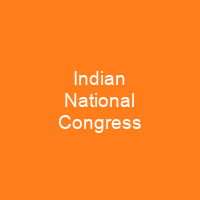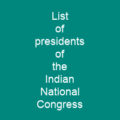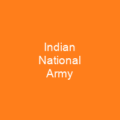The Indian National Congress was the first modern nationalist movement to emerge in the British Empire in Asia and Africa. In the 17 general elections since independence, it has won an outright majority on seven occasions and has led the ruling coalition a further three times. As of July 2019, the party is in power in six legislative assemblies: Punjab, Rajasthan, Chhattisgarh, Jharkhand, Maharashtra and Puducherry.
About Indian National Congress in brief

It has been in power for 54 years, heading the central government for more than 54 years. It is the second largest party in India after the BJP, with a majority of more than 50 per cent of the vote in the 2014 Lok Sabha elections. It was founded in 1885 by retired Civil Service officer Allan Octavian Hume. The first session was attended by 72 delegates, representing each province of India. Notable representatives included Scottish ICS officer William Wedderburn, Dadabhai Naoroji, Pherozeshah Mehta of the Bombay Presidency Association, social reformer and newspaper editor Gopal Ganesh Agarkar, Justice K. Telang, N. G. Chandavarkar,. Behramji Malabari, journalist and activist Gooty Kesava Pillai Pillai, and P. Rangaiah Naidu. This small elite group, unrepresentative of Indian masses, functioned more as a stage for elite political party for the first decade of its existence. At the beginning of the 20th century Congress’ demands became more radical in the face of constant opposition from the British government. By 1905, it decided to advocate in favour of the independence movement because it would allow a new political system in which Congress could be a major party. By the end of the decade, it was appealing to Hindu Indians to mobilise public identity by appealing to an explicitly Hindu identity in an annual annual public meeting.
You want to know more about Indian National Congress?
This page is based on the article Indian National Congress published in Wikipedia (as of Dec. 05, 2020) and was automatically summarized using artificial intelligence.







